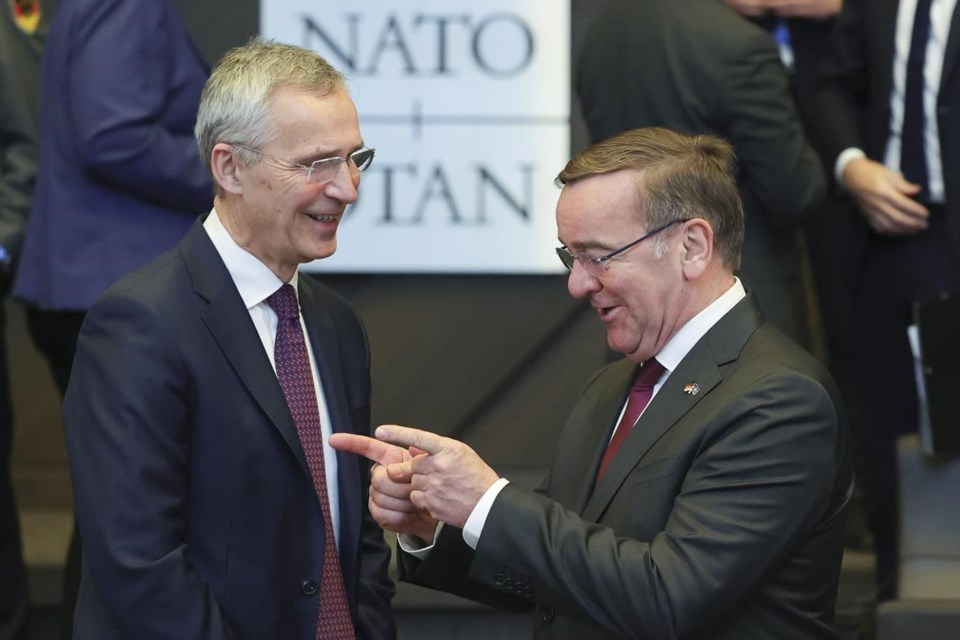BRUSSELS (AP) — NATO Secretary-General Jens Stoltenberg on Wednesday urged the 30 member countries to commit to spending at least 2% of their gross domestic product on defense by a set date, as Russia’s war on Ukraine and other threats eat into military spending.
NATO allies agreed in 2014, after Russia annexed Ukraine’s Crimean Peninsula, to halt the spending cuts they had made after the Cold War and move toward spending 2% of GDP on their defense budgets by 2024. That pledge expires next year, and NATO is working on a new target.
“What is obvious is that if it was right to commit to spend 2% in 2014, it is even more right now because we live in a more dangerous world,” Stoltenberg told reporters, after chairing a meeting of NATO defense ministers, where a first high-level discussion on the issue was held.
“There is a full-fledged war going on in in Ukraine, in Europe, and then we see the persistent threat of terrorism, and we see also the challenges that China is forcing to our security. So, it is obvious that we need to spend more,” he said.
NATO allies in Europe and Canada increased defense spending for the eighth consecutive year in 2022, adding around $350 billion to their budgets. According to NATO’s most recent estimates, 10 countries are close to or above the 2% guideline. Thirteen spend around 1.5% or less.
Several member countries insist that the figure was only ever a guideline, and not a hard target.
“Instead of changing the 2%, I think we should move from regarding the 2% as a ceiling to toward the 2% of GDP as a floor and minimum,” Stoltenberg said. He added that this should not be “a long-term perspective or move towards,” but rather “an immediate commitment to spend 2% as a minimum.”
The United States spends more on its defense budget than all the other allies combined, putting 3.47% of GDP into its military coffers, according to NATO estimates for last year. Some members have suggested that NATO should move toward a 2.5% guideline. Others say that’s unrealistic.
Many countries insist that it’s the quality of the equipment and the amount of contributions that allies make to NATO operations that is most important. GDP percentages are also a slippery metric. When economies tanked during the COVID-19 pandemic, defense budgets looked bigger.
The economy of Turkey — traditionally one of NATO’s biggest defense spenders — has been ravaged by inflation and its military budget only stood at 1.22% of GDP last year, according to NATO’s estimate.
Poland, which borders both Ukraine and Russia, will be spending some 4% of its GDP on defense this year, up from 2.5% recently, as it buys fighter jet, tanks and other weapons — chiefly from the U.S. and South Korea — to deter any potential assault.
Poland’s President Andrzej Duda on Wednesday advocated new security plans for NATO’s eastern flank, and for more armaments and ammunitions to be stockpiled in Poland to enhance the protection of central and eastern European members.
Duda, who held talks with Stoltenberg in Brussels, said having a stockpile in the region would shorten the alliance’s response should any eastern flank country be attacked.
NATO leaders are expected to map out the way ahead when they meet for their next summit in the Lithuanian capital Vilnius in July.
Leaders of NATO's eastern flank countries — the so-called Bucharest Nine —are to meet with President Joe Biden and Stoltenberg in Warsaw next week.
___
Monika Scislowska in Warsaw contributed to this report.
Lorne Cook, The Associated Press



